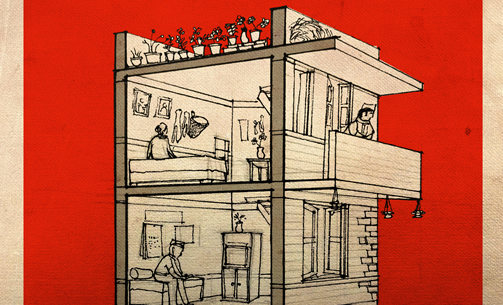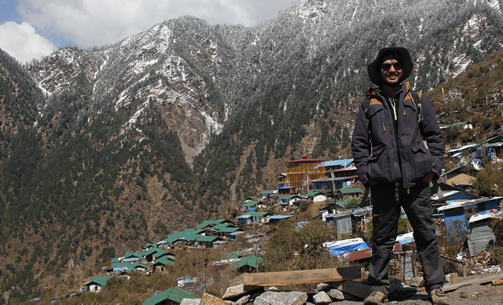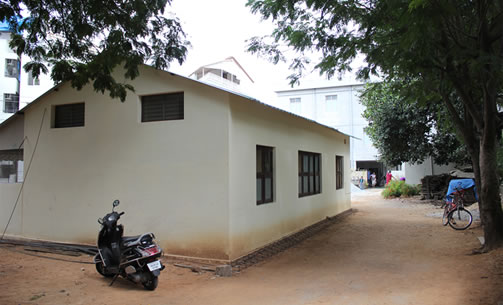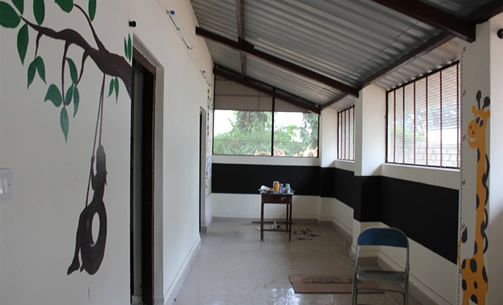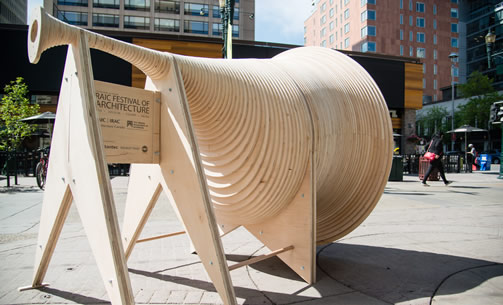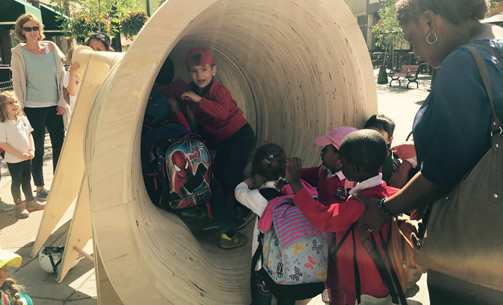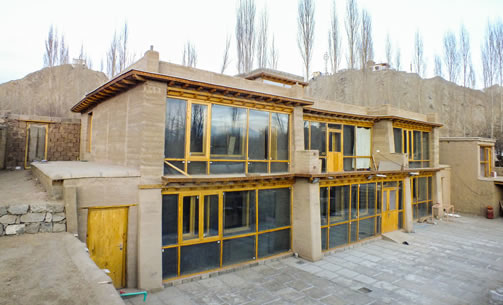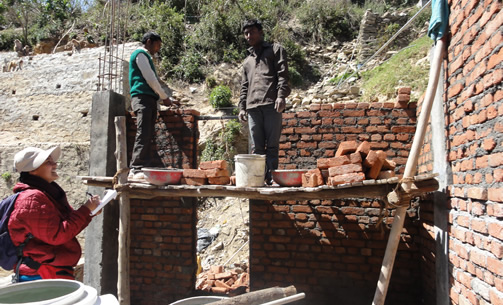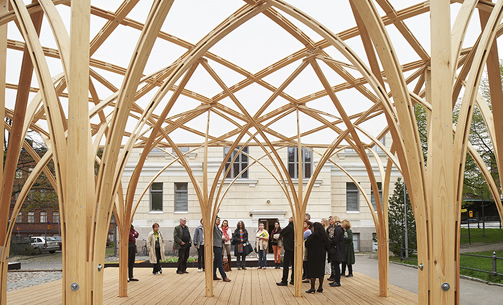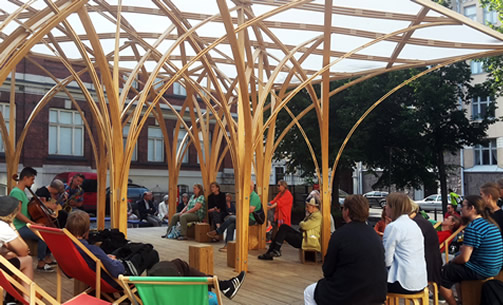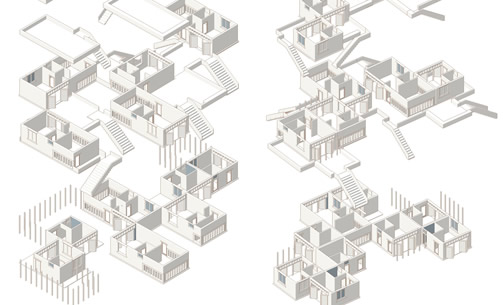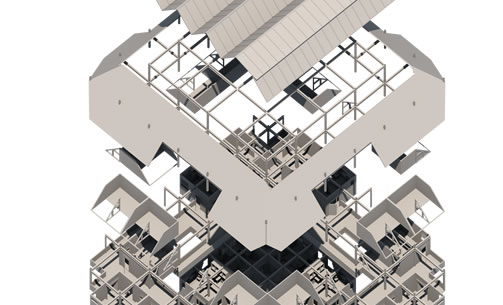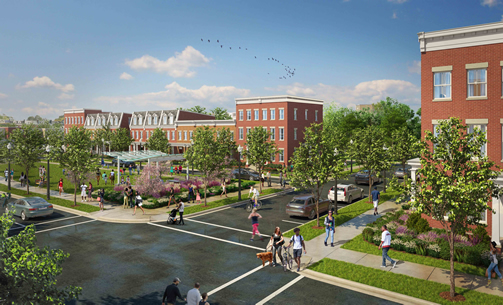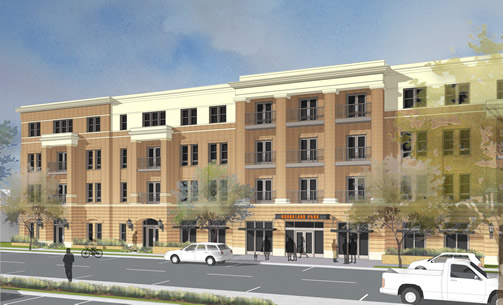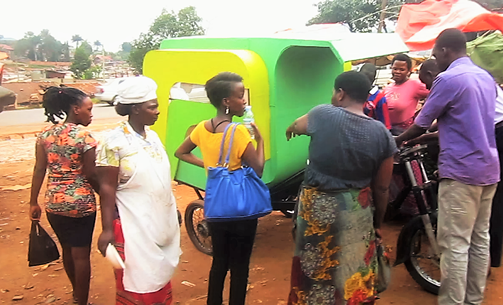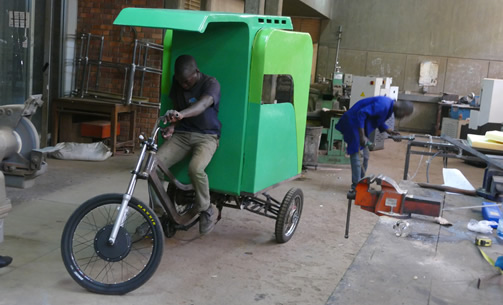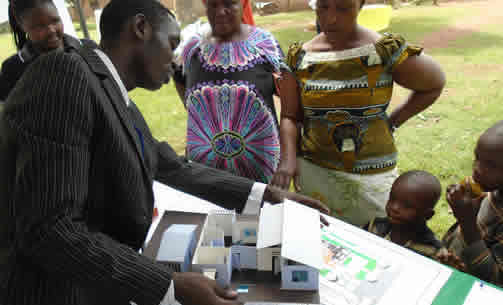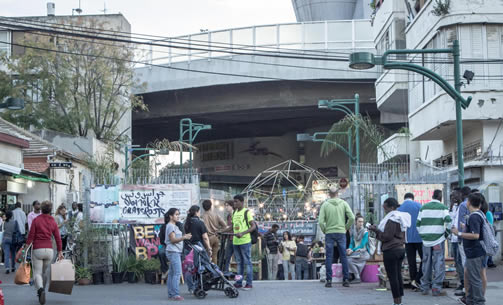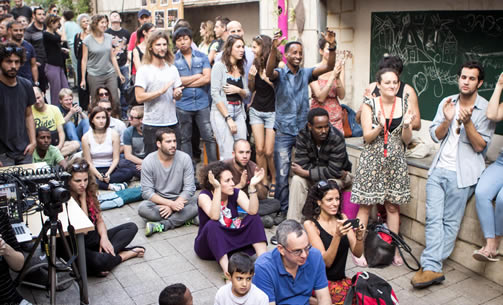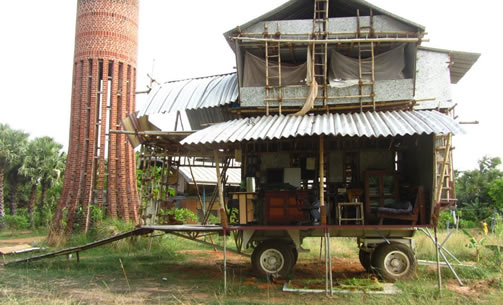M.S. Srinivas - Community Service Fellowship ReportVolunteer with Social Design Collaborative The Berkeley Prize Community Service Fellowship offered me the opportunity to volunteer at Social Design Collaborative (SDC), a community-driven design and research practice based in New Delhi. During my time with them, I was primarily involved in their work with farmers living along the banks of the Yamuna in the city. These are people who have lived here for generations, and whose livelihoods are directly linked to river and its floodplains. However, the state does not acknowledge their existence or provide for them in any way. They are forced to move around frequently due to constant evictions by the development authority, disrupting not just their lives but also their livelihoods. SDC has been working with academics, lawyers and activists, and organizations such as the Basti Suraksha Manch to document the condition of these farmers and secure their right to the city. In this project, I participated in two key activities: the creation of detailed maps that identified agricultural activity and informal settlements by the Yamuna within the city, and the training of local volunteers for in the collection of information regarding the demographics, history, and current condition of these farmers. Both these activities would generally have required many site visits, but due to the COVID-19 pandemic, only a limited number of site visits could happen. However, the site visits that did happen were immensely revelatory for me. It was astonishing to see vast agricultural lands hidden away in the middle of the city, sandwiched between Delhi on one side and Noida on the other. Our team had been under the impression that the agricultural activity largely involved the farming of fruits and vegetables. However, on our first site visit, we learned that much of the fields were actually nursery farms. Plants are an important part of the modern aesthetic culture of Delhi – they are used within houses, as landscaping elements and to decorate sites for events, nurseries abound in the city. However, I had not paused to think about the source of these nursery plants. It really transformed my image of the city’s geography. Even more surprising was the positive resilience that the local volunteers and the people on site demonstrated. Inhabitants of the locality lived with the threat of eviction constantly looming upon them, and some of them had already moved over ten times. This was particularly hard for them since their livelihood was tied to the earth. Beyond this, they also had to deal with the elements and pests such as mosquitoes, and essentially live their lives without a pucca house or any support from the government. They had, however, learned to the live with this situation. They used ingenious architectural solutions to construct temporary structures that provided them with the required shelter and protection. As a whole, this was a profound and enriching experience. Not only did I have the opportunity to contribute the urban rights of some of the most marginalized in the city of Delhi, I also got a peek into the manner in which non-profit organizations, and more specifically, socially-inclined design practices function. Apart from providing consultancy services to other non-profits, SDC sustained itself by receiving grants from international organizations, and through the academic activities of the principal architect. My experience at SDC has made it clear to me that not only is architecture as a social practice financially viable, it is also terribly fulfilling, and immensely useful to the underprivileged and marginalized of the society.
Additional Help and InformationAre you in need of assistance? Please email info@berkeleyprize.org. |
|





